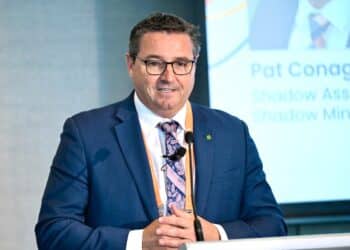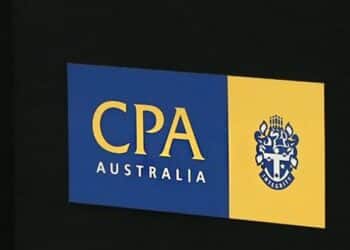Speaking to ifa, principal adviser from non-aligned firm Hart Wealth Management Peter Gehlert said one of the outcomes from running a financial literacy program at his former high school, Concordia College, was that the number of Year 10 students who went on to pursue subjects such as economics and business increased significantly after having exposure to the program.
“Following my course I was asked to be part of the school’s careers night and was proud to see that business and finance had one of the highest turnouts, and the numbers of students looking to pursue subjects like economics significantly increased compared to the prior year’s students that had not been through the course,” Mr Gehlert said.
“I thought that was fantastic – I was really happy with that. Obviously this works – kids take an interest in this topic after they’ve had exposure to it from an expert.”
Mr Gehlert said he partnered with Concordia College and initially investigated the possibility of offering students a financial literacy certification of some kind, however the process raised too many difficulties.
“If there was something more substantial that advisers who are keen to get involved could offer schools, it would increase the interest of schools and give the education bodies something much more substantial to get behind,” he said.
Mr Gehlert developed his own literacy program over 18 months and said that while ASIC’s MoneySmart online tool has been useful, more needs to be done by relevant institutions to help provide content that advisers can use in classroom sessions.
“It’s definitely an area that could be looked at by ASIC. If there was some form of pick-up-and-go syllabus with some content and then some ideas for putting it in place – that would make it a much easier process and encourage a lot more advisers to come on board and do it,” he said.
For advisers interested in how to go about partnering with local high schools, Mr Gehlert said he has run literacy programs in both public and private schools and conducts weekly 30 minute sessions with students across the space of 3-4 weeks.
“Advisers are a wealth of knowledge and spend everyday coaching and educating our clients to improve their financial literacy and knowledge, why would you not want to utilise us as a resource for teaching students?” Mr Gehlert asked.
A spokesperson from Concordia College said, “The benefit of having a financial literacy expert is that it connects the demands of the real world with the prescribed curriculum. Our teachers are experts in the curriculum; an adviser is an expert in the applications.
“The outcomes are that students are engaged as there is variety in the presentation and when delivered from a source that grown-ups use for advice it adds validity to the delivery.”
Recently ASIC stated it believes the best way to offer financial literacy coaching in high schools is to educate teachers who can then deliver the content to students.
In response to ASIC’s statement, one high school teacher commented, “My area of expertise is not in financial literacy. Let the experts in financial literacy such as advisers work together with teachers – who are experts in education – to craft lessons to teach today’s youth.”




Teachers don’t live in the real world?? Where do they live?
When I was at uni I always thought that micro and macro economics should be taught in high school so everyone could walk away with that same knowledge and understanding
Great work and so true. The financial subject (Money Matters) my son did in Year 9 was not any kind of financial literacy. I was shocked at the content. I have also presented in high school and found the thirst for knowledge to be amazing. However teachers don’t have the ‘real world’ experience we have and can’t provide the same education we can. Any reason we can’t be paired with a teacher so we can give expert knowledge and the teachers can ensure the kids are supervised and picking up on the content, as well as learning themselves?